The best internet security suites in 2024
The best internet security suites protect all your devices from the latest threats

The best internet security suites make it easy to protect all of your PCs, Macs, iPhones and Android devices from malware, phishing attacks and other cyber threats.
These premium software packages act like a Swiss Army knife for your security needs as most of them include antivirus software, a password manager, a VPN, cloud backup software and identity theft protection under one subscription. You will pay more for one of the best internet security suites but this pales in comparison to what you would pay if you bought each of these services individually.
Whether you regularly use multiple computers, tablets and phones or just have a large family you want to keep safe online, these are the best internet security suites you can get right now.
The quick list
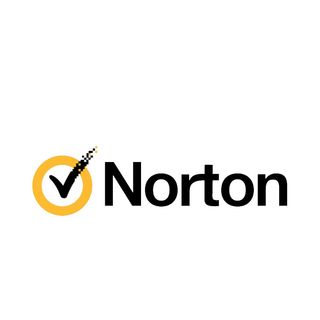
Norton 360 with LifeLock Ultimate Plus includes malware protection, a password manager, VPN, parental controls, cloud backup and even identity theft protection but at a steep price.
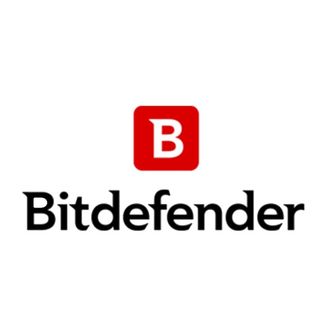
Bitdefender Premium Security includes malware protection, a password manager, a VPN, parental controls, a secure web browser and anti-theft software with an easy-to-use interface.

McAfee Total Protection Ultimate includes malware protection, a password manager, a VPN, a firewall, parental controls and ransomware rollback. It can protect up to 10 devices and is a reasonably priced alternative to other top internet security suites. However, you don't get webcam protection, a secure browser or backup software and neither the VPN nor the parental controls work on Mac.

Trend Micro includes malware protection, a password manager, a VPN, a secure browser, dark web monitoring and parental controls. The best part though, all of these work on Mac, PC, Android and iOS for up to 10 devices.
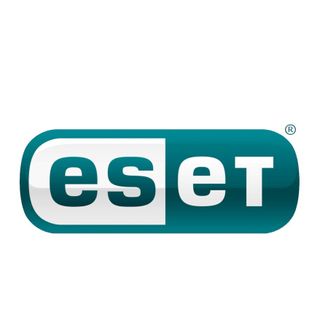
ESET Smart Security Premium includes malware protection, a password manager, parental controls, anti-theft features and webcam protection but not a VPN. However, it has very little impact on system performance and you pay per device.

Kaspersky Total Security includes malware protection, a password manager, parental controls, backup software, anti-theft features, webcam protection and ransomware rollback but no VPN. It's worth noting that Kaspersky is a Russian cybersecurity firm which has been banned by government agencies around the world. This means it is up to you to decide if it's safe for your needs.
The best internet security suites you can buy today
Why you can trust Tom's Guide
The best internet security suite overall
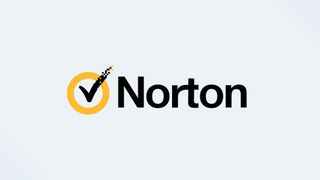

Specifications
Reasons to buy
Reasons to avoid
Norton 360 with LifeLock Ultimate Plus includes just about every security feature you’ll need, including many that we normally review as stand-alone products.
Unlimited password manager? Check. Unlimited VPN? You. Parental controls, cloud backup, top-notch identity theft protection? All there.
Norton 360 with LifeLock Ultimate Plus also has excellent protection against malware, its own firewall, dedicated webcam protection and it can even be installed on an unlimited number of devices.
So what’s the catch? The parental controls don’t work on Mac and neither does the cloud backup service. If you have more than one PC, you might fill up the 500GB of backup space after a year or two.
Then there’s the sticker shock. Norton 360 with LifeLock Ultimate Plus costs $350 per year after the first year which is far more than other premium antivirus suites.
Still, buying the equivalents of Norton’s features and services from other companies costs at least $550 a year. If you absolutely need and can afford all of these extras, then Norton 360 with LifeLock Ultimate Plus could be the perfect solution.
Read our full Norton 360 with LifeLock Ultimate Plus review.
Save on subscriptions with our Norton coupon codes.
Best internet security suite for features

Specifications
Reasons to buy
Reasons to avoid
What if you don't want or need identity-theft protection or cloud-backup software, but still need an unlimited VPN? Bitdefender Premium Security, which costs $150 yearly for up to 10 devices, might be the answer.
Premium Security combines Bitdefender's very good malware detection and easy-to-use interface with a huge assortment of extra features. These include a few that Norton doesn't have, such as ransomware rollbacks, a super-secure web browser for online banking, anti-theft software for laptops and a file shredder.
Bitdefender Premium Security also has parental controls for all four major platforms, but its unlimited password manager and dedicated webcam and microphone protections work only on Windows.
Read our full Bitdefender Premium Security review.
Save on subscriptions with our Bitdefender coupon codes.
Best internet security suite for value

Specifications
Reasons to buy
Reasons to avoid
Norton isn't the only antivirus maker with an identity-theft-protection service. McAfee Total Protection Ultimate includes similar coverage for $160 per year, less than half of what Norton costs.
You'll get the benefits of McAfee's Identity Theft Protection Plus plan, which costs $175 per year as a stand-alone and includes credit monitoring and up to $1 million in insurance coverage.
The package also includes McAfee's protection against malware, the True Key password manager, Safe Kids parental controls, file encryption, file shredding, a firewall and unlimited VPN service for up to five devices. Like many McAfee antivirus subscriptions, Total Protection Ultimate nominally protects up to 10 devices but in practice is unlimited.
The downsides are that neither the VPN nor the parental controls work on Macs, and that there's no webcam protection, hardened browser or backup software. But if you want all-encompassing protection at a bargain rate, you could do a lot worse than McAfee.
Read our full McAfee Total Protection Ultimate review.
Save on plans with our McAfee promo codes.
Best internet security suite for multiple platforms
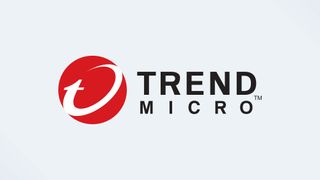
Specifications
Reasons to buy
Reasons to avoid
Like McAfee Total Protection Premium, Trend Micro Premium Security ($130 per year for up to 10 devices) does without backup software or cloud storage, but it includes a password manager, unlimited VPN service and parental controls, all of which work on Mac, PC, Android and iOS.
There's also what Trend Micro calls "ID Protection," which actually just monitors the dark web for your data and can be accessed only through mobile apps.
On the antivirus side, Trend Micro does very well in lab tests of malware detection and also provides ransomware rollbacks, a file shredder, file encryption and a system optimizer. Trend Micro's malware engine has a remarkably small impact on Windows system performance when running in the background, but can eat up a fair amount of resources during full scans.
Read our full Trend Micro Premium Security review.
Best internet security suite for performance
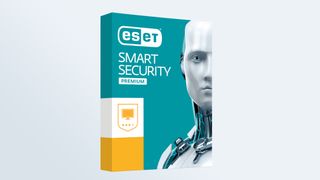
Specifications
Reasons to buy
Reasons to avoid
ESET is one of the biggest names in antivirus protection in Europe, and while its top-end Smart Security Premium suite doesn't pack in VPN service, backup software or identity protection, it's still remarkably light, fast and efficient.
ESET Smart Security Premium does have a password manager, parental controls, anti-theft protections for laptops, dedicated webcam protection, a dedicated secure browser and even home-network-management software.
It even includes bare-bones antivirus software for Linux machines, and its Windows malware-detection engine does very well in lab tests. The only downside is that the parental controls don't work on iOS.
One bonus: With ESET, you don't pay more than you have to. Most antivirus brands tier premium subscriptions at five, 10 and sometimes 15 devices. ESET bucks the trend, starting at $60 per year for one device and adding $10 for each additional device.
So if you've got just four devices to protect, you'd pay $90 per year with ESET Smart Security Premium while most other brands on this page would charge you much more.
Read our full ESET Smart Security Premium review.
Best internet security suite for protection
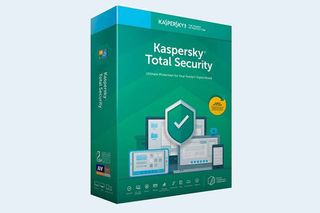
Specifications
Reasons to buy
Reasons to avoid
If you can live without an unlimited VPN, then your best bet might be Kaspersky Total Security, which covers 5 devices for $100 per year or 10 devices for $150 per year.
Kaspersky has the best record on beating malware in third-party lab tests, hands-down. Its password manager works across all four major platforms, and its parental controls (also fully cross-platform) are second only to Norton's.
Like Bitdefender, Kaspersky offers anti-theft features for laptops, ransomware rollbacks and a secure browser mode for online banking, but Kaspersky's browser works on Macs as well as on Windows. It also offers file encryption and unique protection against "stalkerware" used by jealous partners.
However, while Kaspersky offers backup software, like Norton, it doesn't provide online storage for those backups, but instead sends you to your own Dropbox account.
If you've got five or fewer devices to protect, you can get both Kaspersky Total Security and Kaspersky's unlimited VPN for $105 annually, less than the cost of Bitdefender Premium Security.
Read our full Kaspersky Total Security review.
How to choose the best internet security suite for you

So do you really need all of these extra features with your antivirus software? Well, it’s hard to argue against the benefits of using a password manager. Beyond that though, you’ll need to consider your own personal circumstances.
If you have young kids or teenagers at home, then you might want parental control software to keep tabs on what your children are doing online or to track the physical location of their phones.
Meanwhile, if you’re a person of means, then investing in identity theft protection might be wise. At the same time, if you travel a lot, you’ll want to use a VPN while in hotel rooms and airport lounges.
To get a better idea of the standalone services these premium internet security suites compete with, check out our guides on the best identity theft protection, best cloud backup services, best parental-control apps and best password managers.
Internet security suites may seem expensive but they’re still far cheaper than purchasing all of these extra services à la carte. Instead, you just have to decide which ones you really need.
How we test the best internet security suites
Our evaluations are based on the interface, performance, protection and extra features that each internet security suite offers. Was the interface intuitive and user-friendly? How much did malware scans slow down system performance? How well did the program detect and remove malware? Does the program offer other useful tools or features?
Most of our tests were performed on a Lenovo ThinkPad T470 with a 2.5GHz Core i5-7200U processor, 8GB of RAM and 256GB of solid-state storage containing 43.3GB of files.
In order to assess a program’s impact on system performance on both Windows and macOS, we used our own custom tests which measure how long the device’s processor takes to match 20,000 names and addresses on a spreadsheet. The longer it took the laptop to finish each test, the heavier the performance impact.
As for malware detection scores, we used results from three independent testing labs: AV-TEST in Germany, AV-Comparatives in Austria and SE Labs in England. Each lab puts the products from all of the major antivirus brands through stress tests which involve thousands of pieces of malware including hundreds of new samples since unknown malware is more difficult to detect.
For more information, check out our how we test antivirus software and apps guide as well as our more general how we test page for Tom's Guide.
Sign up to get the BEST of Tom's Guide direct to your inbox.
Get instant access to breaking news, the hottest reviews, great deals and helpful tips.

Anthony Spadafora is the security and networking editor at Tom’s Guide where he covers everything from data breaches and ransomware gangs to password managers and the best way to cover your whole home or business with Wi-Fi. Before joining the team, he wrote for ITProPortal while living in Korea and later for TechRadar Pro after moving back to the US. Based in Houston, Texas, when he’s not writing Anthony can be found tinkering with PCs and game consoles, managing cables and upgrading his smart home.